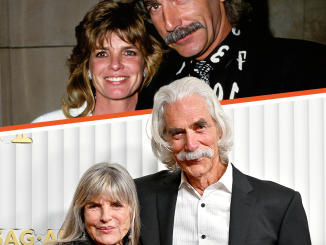Cooking for the first time can be intimidating. There are so many rules, tips, and techniques that experienced cooks take for granted. One common mistake that beginners make is washing vegetables with soap, believing that it will make the food cleaner. However, this is not only unnecessary but can also be harmful.
Why Would Someone Wash Vegetables with Soap?

If you’ve never cooked before, you might assume that soap is the best way to remove dirt and bacteria from vegetables. After all, soap is used to clean dishes, hands, and surfaces—so why not food? While this logic seems reasonable, it’s actually a big misconception.
Many beginners want to ensure that their produce is as clean as possible, especially with concerns about pesticides, bacteria, and dirt. However, using soap is an unnecessary step that can do more harm than good.
The Hidden Dangers of Washing Vegetables with Soap
Washing vegetables with soap might sound harmless, but it can lead to several problems:
1. Soap is Not Meant for Consumption
Household dish soap and hand soap contain chemicals and detergents that are not meant to be ingested. Even if you rinse thoroughly, soap residues can remain on the vegetables, leading to stomach discomfort or digestive issues when consumed.
2. It Can Alter the Taste of Your Food
Have you ever accidentally gotten soap in your mouth? That bitter, unpleasant taste can transfer to your food if you wash your vegetables with soap. This can completely ruin the flavor of your dishes.
3. Soap Can Strip Away Natural Protective Layers
Many vegetables and fruits have a natural protective coating that helps keep moisture in and bacteria out. Washing them with soap can strip away these natural defenses, causing them to spoil faster.
4. Risk of Chemical Ingestion
Some soaps contain harmful chemicals that can be dangerous if ingested, even in small amounts. This is why food-grade cleaning solutions exist for commercial use, but for home cooking, they are unnecessary.
What is the Proper Way to Wash Vegetables?
Now that we know why using soap is a bad idea, let’s talk about the correct way to clean your vegetables:
1. Rinse with Cold Water
The best and easiest way to clean produce is by rinsing it under running cold water. This helps remove dirt, bacteria, and pesticide residues without the need for soap or chemicals.
2. Use a Vegetable Brush for Tough Skins

For produce with thicker skins like potatoes, carrots, and cucumbers, using a vegetable brush can help scrub away dirt more effectively.
3. Soak in Vinegar or Baking Soda Water (Optional)
If you’re extra cautious, soaking vegetables in a solution of vinegar and water (1 part vinegar to 3 parts water) for a few minutes can help remove more bacteria and pesticide residue. Baking soda water is another great alternative.
4. Peel When Necessary
If you’re concerned about contaminants, peeling vegetables like carrots, cucumbers, or apples can help remove pesticide residues and dirt.
5. Dry Properly
After washing, pat your vegetables dry with a clean towel or let them air dry. This helps prevent bacterial growth and keeps them fresh longer.
Common Misconceptions About Cleaning Vegetables

There are plenty of myths about washing vegetables, and it’s important to separate fact from fiction:
- “Hot water kills bacteria faster.” – While hot water can kill bacteria, it can also cause vegetables to wilt or lose nutrients. Stick with cold water.
- “Soap removes pesticides better than water.” – Water alone does a great job of removing most pesticide residues, especially if you scrub or soak the produce.
- “You need special fruit and vegetable washes.” – While commercial produce washes exist, studies show they’re not significantly more effective than plain water.
Final Thoughts
Washing vegetables is an essential step in cooking, but using soap is a rookie mistake that should be avoided. Soap isn’t designed for consumption, and it can leave harmful residues on your food. Instead, stick to cold water, gentle scrubbing, and natural cleaning solutions like vinegar or baking soda.
Cooking is a learning process, and mistakes happen. But now that you know why soap and veggies don’t mix, you’re one step closer to becoming a kitchen pro. Happy cooking!
My Father Went Fishing with His Friends and Forgot My 18th Birthday

Ryder’s 18th birthday should have been a milestone celebration, but the absence of his father left him feeling deeply disappointed. Learning that his dad chose a fishing trip with friends over spending time with him only added to his heartbreak. However, what happened next led Ryder to see things in a new light. Let me introduce myself—I’m Ryder, and I recently turned 18. Before I dive into the story of my birthday, let me share a bit about my life. Things were pretty normal until I turned seven. That’s when the arguments between my mom and dad began. I didn’t fully understand what was happening at the time, but I could sense the tension. By the time I was eight, my dad was gone. I remember clearly the day my mom sat me down and explained, “Ryder, sweetie, your father won’t be living with us anymore. But you can still see him whenever you want, okay?”My heart skipped a beat.
“But why, Mom? Did I do something wrong?” Mom’s eyes welled up with tears, but she smiled gently. “Oh, no, honey. You didn’t do anything wrong. This isn’t your fault at all.” “Then why is Dad leaving?” I asked, desperate for answers. She took a deep breath. “Well, sometimes grown-ups just can’t live together anymore. Your dad and I tried really hard to make things work, but sometimes things just don’t turn out the way we hope.” “Can’t you try harder?” I pleaded, not ready to accept the reality. She pulled me into a hug. “We did try, Ryder. For a long time. But sometimes, the kindest thing we can do is to live apart. Your dad and I will both always love you, and that won’t ever change. We just won’t be living in the same house anymore.” And just like that, my parents were divorced. After the divorce, Mom took a job as an elementary school teacher, working tirelessly to give me a good life. I’ll always be grateful for that. But my dad? He became like a ghost in my life—always busy with work, friends, and his hobbies, especially fishing. Every weekend, he’d vanish with his buddies to go fishing, even when Mom reminded him that I’d be visiting. Despite everything, a part of me still longed for his attention. I wanted him to notice me, to be proud of me. So, I spent years trying to win his approval, hoping that one day he’d realize how much I needed him. But I was wrong. As my 18th birthday approached, I thought maybe, just maybe, he’d show up this time. Turning 18 is a big deal, after all. I planned a small party with Mom and a few close friends. I even texted Dad about it, and his reply gave me hope: “Sounds great! I’ll try to be there.” The day arrived, and Mom went all out—decorating the house, baking my favorite cake, and even surprising me with a new guitar I’d been eyeing for months. Friends started arriving, and the house was soon filled with laughter and excitement. But as the hours passed, there was still no sign of Dad. I kept checking my phone, hoping for a message, but there was nothing. Finally, I couldn’t take it anymore and decided to call him. When he finally picked up, I could hear the sound of waves and chatter in the background. “Dad, it’s my birthday,” I reminded him, trying to hide the desperation in my voice. “Oh, right. Happy birthday!” he replied casually. “I’m out on the lake with the guys. I’ll catch you later, okay?” I hung up, feeling tears blur my vision. I rushed to my room and hid there until Mom found me. She sat beside me, putting her arm around my shoulders. “I’m sorry, honey. You know how he is.” “I know,” I whispered, trying to stay strong, but inside, I was shattered. The days after my birthday were a blur. I pretended everything was fine, but inside, I felt invisible. Dad’s absence reminded me that I wasn’t important enough for him. Then, a week later, Dad called. He acted as if nothing had happened. “Hey, I got you a gift,” he said. “Want to come over and get it?” Part of me wanted to tell him to forget it, but another part still held onto that sliver of hope. So, I agreed. When I arrived at his house, he greeted me with a smile and handed me a long, mysterious package. As I unwrapped it, my heart sank—it was a fishing rod. “What do you think?” he asked proudly. “We can go fishing together sometime!” The fishing rod wasn’t just a poorly chosen gift; it was a symbol of his absence, a reminder of the very activity that had taken him away from me. “Thanks, Dad,” I forced a smile. “It’s… great.” He didn’t seem to notice my lack of enthusiasm. “I figured it was time you learned the ropes. You’ll have fun!” He then suggested we go fishing the next weekend, but I knew I couldn’t keep pretending everything was fine. “I… I can’t come next weekend, Dad,” I said. “I’ve got plans with Mom.” He frowned for a moment, but then his smile returned. “No worries, we’ll find another time.” But I knew we wouldn’t, and for the first time, I was okay with that. As I left his house holding the rod, I realized it was time to let go of the fantasy and accept the reality. I couldn’t keep chasing after someone who couldn’t be there for me. Over the next few months, I focused on the people who genuinely cared about me—my mom, my friends, and most importantly, myself. I threw myself into my music, practicing guitar for hours, and began helping Mom more around the house, grateful for everything she had done for me. One evening, as we were doing dishes together, Mom asked, “Have you heard from your father lately?” “Nah, but it’s okay. I’m done waiting for him to show up,” I replied. She looked at me with a mix of sadness and understanding. “I’m sorry it turned out this way, Ryder. I always hoped…” “I know, Mom,” I hugged her. “But I’ve got you, and that’s more than enough.” As time passed, I learned that my worth wasn’t tied to Dad’s attention. I found strength in the love and support around me and realized that sometimes people won’t be what you need them to be—and that’s okay. The fishing rod still sits in my closet, untouched. It serves as a reminder, not of what I lost, but of what I gained—self-respect, resilience, and the ability to let go of what I can’t change. What would you have done if you were in my place?



Leave a Reply